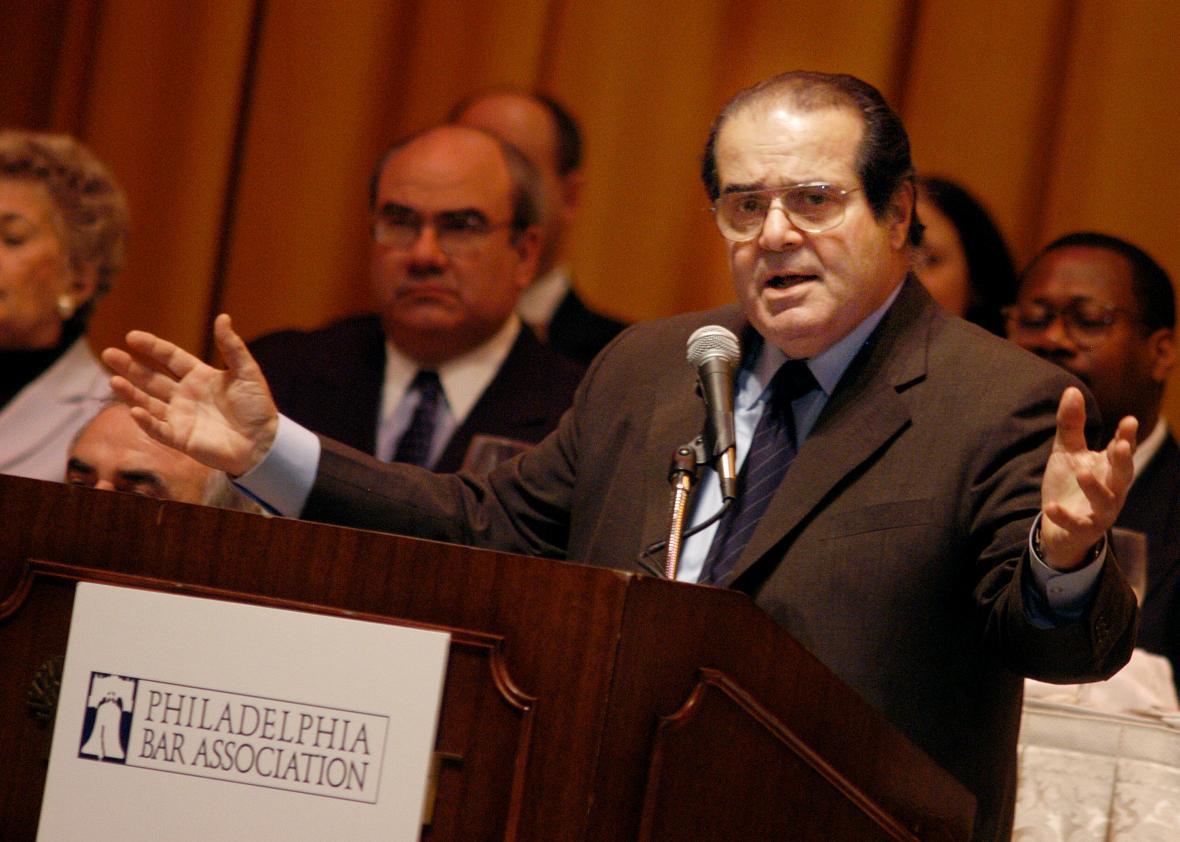On Thursday, the Equal Employment Opportunity Commission dropped a bombshell: Sexual orientation discrimination in the workplace, the EEOC ruled, is already illegal under Title VII of the Civil Rights Act of 1964. This ruling—which is binding on EEOC conciliations between employers and employees, and is an extremely persuasive authority for courts—has been a long time in the making. In fact, it can be traced back to a unanimous 1998 Supreme Court opinion written by none other than Justice Antonin Scalia.
That case, Oncale v. Sundowner dealt with Title VII’s prohibition of discrimination “because of sex.” Joseph Oncale worked on an oil rig with seven other men, who sexually harassed him physically and verbally. Oncale sued his employer, arguing that he faced discrimination because of his sex. But the court ruled against him, holding that Title VII did not protect men against sex discrimination by male co-workers.
In a terse opinion, Scalia emphatically rejected this reasoning. Male-on-male sexual harassment, Scalia acknowledged, “was assuredly not the principal evil Congress was concerned with when it enacted Title VII.” (The principal evil, of course, was male-on-female workplace discrimination.) Still, Scalia explained:
Statutory prohibitions often go beyond the principal evil to cover reasonably comparable evils, and it is ultimately the provisions of our laws rather than the principal concerns of our legislators by which we are governed.
This passage has formed the bedrock of the EEOC’s expansion of Title VII’s protections to sexual and gender minorities. In a 2012 decision holding that Title VII bars discrimination based on gender identity and transgender status, the EEOC placed Scalia’s “comparable evils” declaration at the center of its analysis. On Thursday, the commission pulled the same maneuver, faithfully quoting Scalia and noting that the text of Title VII does not exclude sexual minorities from the law’s protections. And now, thanks in part to Scalia, LGBT employees in every state are protected from workplace discrimination by federal law.
Of course, Scalia’s Oncale opinion wasn’t the only factor driving Thursday’s decision. An earlier ruling barring sex stereotyping—from which Scalia dissented—was even more influential, as were Commissioner Chai Feldblum’s tireless efforts to expand Title VII’s reach to the LGBT community. Still, as gay employees start citing the EEOC’s decision to combat workplace discrimination, they should feel some gratitude for Scalia. Quite unintentionally—and not for the first time—Scalia has helped make America a more LGBT-friendly nation.
